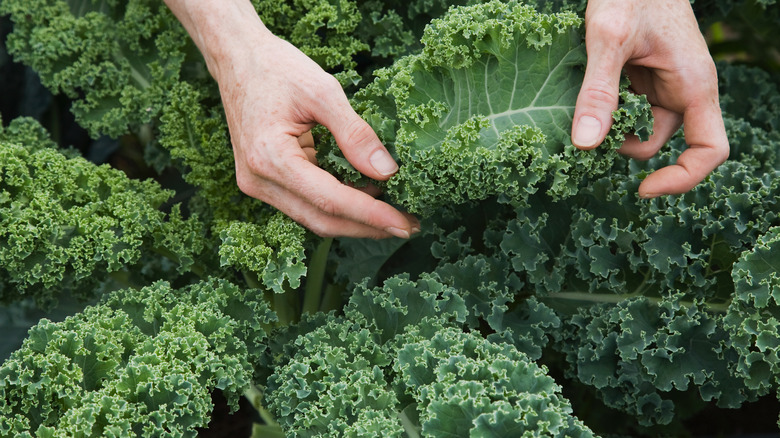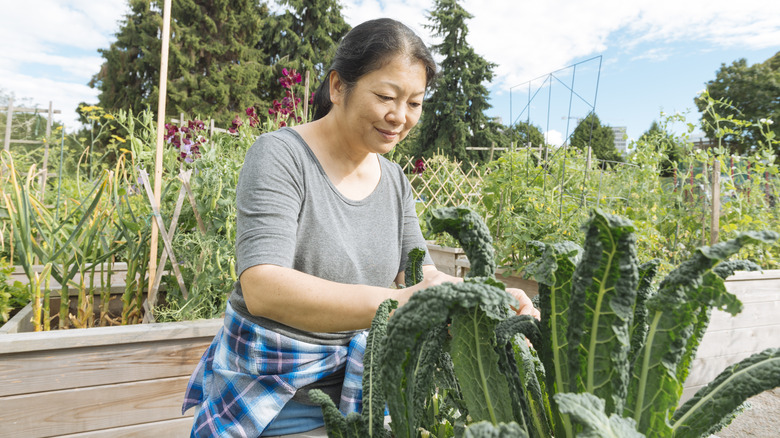The Best Time Of Day To Harvest Kale
If you have kale in your garden, you definitely need to know about the proper time to harvest it so that you guarantee the best taste! From now on, consider harvesting your kale only in the morning. This is the best time to harvest kale because the leaves are at their freshest and most flavorful. Kale is known for its rich and earthy taste, and harvesting it early in the day — per TikToker Farmer Froberg — ensures that these flavors are preserved.
Additionally, harvesting kale in the morning helps to avoid the bitter taste that can develop in the leaves when exposed to heat. As the day progresses and temperatures rise, kale leaves can become more bitter and less enjoyable to eat as they lose a lot of moisture to transpiration from the sun, particularly in the afternoon. As plants naturally develop more starch throughout the day, it creates a less enjoyable taste if they're harvested later. Overnight, plants convert these starches to sugars, yielding a tastier bounty from a morning harvest. Thus, by harvesting in the morning, gardeners can ensure that their kale retains its natural sweetness, avoiding any unpleasant bitterness altogether.
For an added bonus, your best tasting kale can be harvested after a frost. The low temperatures experienced during a frost help to enhance the flavor of kale by breaking down some of the starches in the leaves. This process results in a sweeter and more tender kale, making it even more delicious to consume.
How to harvest your kale properly
Harvesting kale properly is essential to ensure a plentiful and extended growing season. This leafy green vegetable is known for its hardiness and ability to continue producing leaves if harvested correctly. First, it's crucial to wait until the kale plants have reached a sufficient size for harvesting. Generally, you can start picking the outer leaves when they are about six to eight inches long, which usually takes about two months from planting, as it is a fast-growing vegetable. Avoid harvesting the center leaves or the growing tip, as these are essential for the plant's continued growth.
To harvest kale, use clean, sharp scissors or pruning shears. Pinch or snip the individual leaves close to the stem, leaving a small portion of the stem intact to promote regrowth. This method prevents damage to the plant and encourages new leaves to sprout from the axils — the junction between the stem and a leaf. Never pull or tear the leaves as this can harm the plant and hinder regrowth.
Regular harvesting is key to encouraging kale to keep growing. As the plant matures, continue harvesting the outer leaves, working your way up the stem. This process stimulates the plant to produce new leaves from the center, prolonging the harvest season. Remember to keep the plants well-watered and fertilized, as healthy kale plants are more likely to thrive and provide a continuous supply of nutritious greens throughout the season.

